
Tick Control: Brevard County’s Trusted Experts
Brevard County, FL, is renowned for its scenic coastline, vibrant ecosystems, and outdoor recreational activities that attract residents and visitors alike. Whether it’s the sun-drenched beaches, rich wildlife habitats, or lush natural preserves, there’s no shortage of ways to enjoy the county's natural beauty. However, one unwelcome side effect of Brevard’s warm, subtropical climate is the proliferation of ticks. These parasitic pests are more than just a nuisance; they can pose significant health risks to humans and pets alike by transmitting diseases like Lyme disease, Rocky Mountain spotted fever, and tick paralysis.
The warm, humid climate in Brevard County creates ideal conditions for ticks to thrive nearly year-round. Unlike regions with cooler climates where ticks are only active in the summer, Florida's subtropical environment allows ticks to remain a persistent threat. This makes it even more important for homeowners and property managers in Brevard to stay vigilant and take steps to prevent and control tick infestations.
At All U Need Pest Control, we’ve been helping the residents of Brevard County protect their homes and families from ticks for over 20 years. Our team of highly skilled professionals uses a combination of proven techniques and eco-friendly pest control methods to effectively eliminate ticks and prevent future infestations. We pride ourselves on offering fair pricing, and we back our work with a satisfaction guarantee. As members of the Florida Pest Management Association, we adhere to the highest industry standards and are committed to delivering exceptional service.
If you suspect a tick infestation on your property or simply want to ensure your home stays tick-free, don’t wait. Call All U Need Pest Control at 1 (888) 239-BUGS or contact us online today for a free consultation. Our motto is simple but effective: "If they’re not dead, we’re not done!"
Pest Control Services in Brevard County, FL
- Ant Control
- Bed Bug Control
- Beetle Control
- Cockroach Control
- Flea Control
- Home General Pest Control
- Hornet Control
- Millipede Control
- Mosquito Control
- Pantry Pest Control
- Rat & Rodent Control
- Scorpion Control
- Silverfish Control
- Spider Control
- Stink Bug Control
- Termite Control
- Wasp Control
- Winter Control
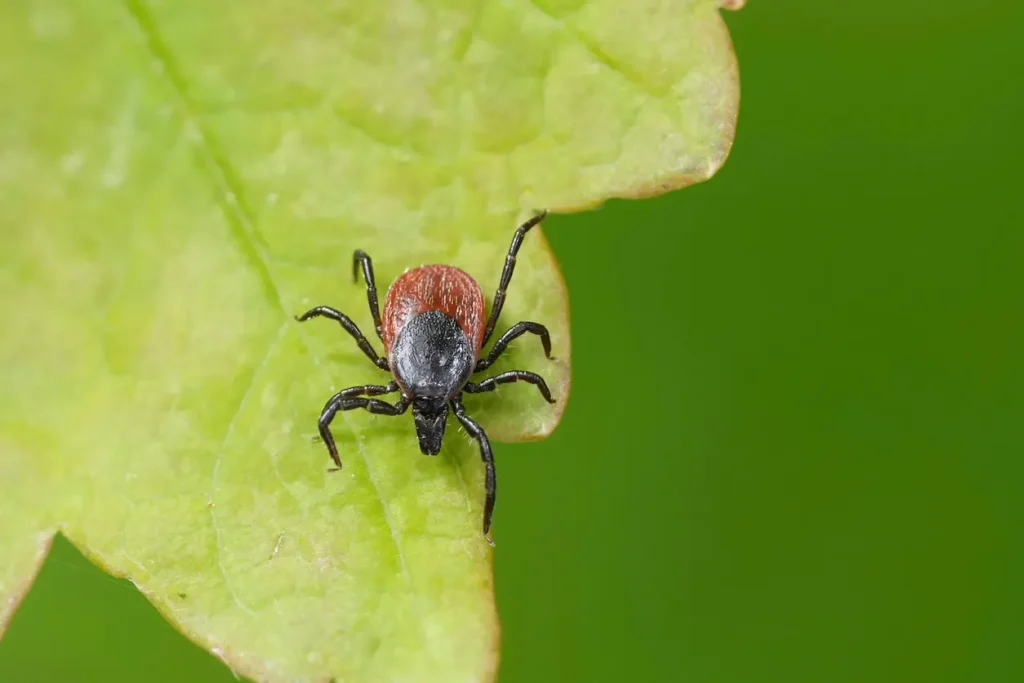
Understanding Tick Behavior
While many people assume ticks are insects, they are actually arachnids, belonging to the same family as spiders and scorpions. These parasitic pests feed on the blood of humans, pets, and wildlife, which makes them a frequent concern for those who spend time outdoors in areas like Brevard County. Ticks can spread a number of diseases through their bites, which is why it’s important to understand how they behave and where they tend to reside.
Ticks are highly opportunistic creatures, seeking out hosts to feed on as part of their lifecycle. In Brevard County, ticks are especially prevalent in areas with tall grass, dense vegetation, and wooded or shaded spaces. This region’s warm, humid climate provides the perfect conditions for ticks to flourish. Unlike in more temperate areas, where ticks may be inactive during colder months, Brevard County’s subtropical environment allows ticks to remain active throughout most of the year.Common Tick Species in Brevard County:Several species of ticks are common in Brevard County, each posing unique risks to residents and pets. Here are some of the most common species you may encounter:
- Black-legged tick
- American dog tick
- Brown dog tick
- Lone star tick
These tick species thrive in various habitats across Brevard County. From residential backyards to hiking trails, ticks can be found in almost any environment that provides moisture and ample hiding places. It’s important to familiarize yourself with these species, as each one may carry different diseases and have varying behaviors.
Ticks are generally found in outdoor environments but can sometimes find their way indoors, particularly species like the brown dog tick. For most residents in Brevard County, the greatest risk comes from spending time outdoors, particularly in areas with dense shrubbery, tall grass, or wooded paths. Understanding the behavior of these ticks is essential for preventing their spread and protecting your family and pets.Here are some ways to identify them:
- Ticks become much larger after feeding due to the blood they consume.
- Ticks have a small head, while the abdomen is much larger in comparison.
- Ticks’ front legs face toward the head, and their back legs face toward the abdomen.
- Adult ticks are comparable to an apple seed in size, while nymphs are closer in size to a poppy seed. Males are generally smaller than females.
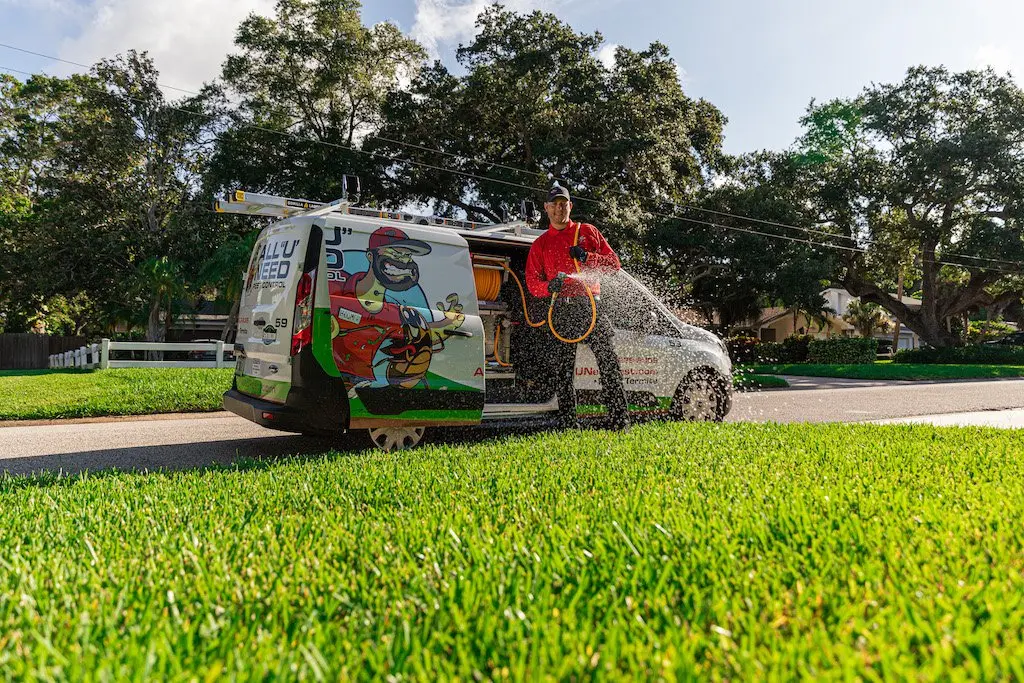
Risks Associated With Ticks
Ticks are not just a minor nuisance; they are vectors for several serious diseases that can impact both humans and animals. In Brevard County, where outdoor activities are common, it’s essential to be aware of the health risks posed by ticks and take appropriate action to minimize exposure. When ticks feed on the blood of an infected host, they can transmit various pathogens to their next host, leading to a range of illnesses.
While not all ticks carry diseases, the potential for disease transmission is significant enough that prompt removal and prevention are critical. Here are some of the primary health risks associated with tick bites in Brevard County:
Lyme Disease
Lyme disease is one of the most well-known tick-borne illnesses. It is transmitted primarily by the black-legged tick (commonly known as the deer tick), which is prevalent in many parts of Brevard County. Lyme disease can cause a wide range of symptoms, including fever, headaches, fatigue, and a distinctive bullseye-shaped rash. If left untreated, Lyme disease can lead to more serious health complications, such as arthritis, heart problems, and neurological issues. Fortunately, early detection and treatment with antibiotics can prevent long-term effects.
Rocky Mountain Spotted Fever
Rocky Mountain spotted fever (RMSF) is another bacterial infection spread by ticks, particularly the American dog tick. This disease can cause symptoms such as fever, rash, headache, and muscle pain. In severe cases, RMSF can lead to damage to blood vessels, tissues, and organs. If untreated, Rocky Mountain spotted fever can be life-threatening, but early treatment with antibiotics is effective in most cases.
Tick Paralysis
Tick paralysis is a rare but serious condition that occurs when a tick releases a neurotoxin into its host while feeding. This neurotoxin can cause muscle weakness and paralysis, which may progress if the tick is not promptly removed. In pets, particularly dogs, tick paralysis can be fatal if left untreated. While rare in humans, it is important to be aware of the symptoms, especially if you or your pets spend a lot of time outdoors in Brevard County.

Signs of Tick Infestation
Identifying a tick infestation early can help prevent the spread of diseases and protect your family and pets from harm. Since ticks are often found in outdoor areas, it can sometimes be difficult to recognize an infestation. However, there are several common signs that indicate ticks may be present on your property or inside your home.
Bites
Tick bites are one of the most obvious signs of a tick infestation. Ticks attach to the skin of their hosts and feed on their blood. While the bite itself is often painless, it may cause itching, redness, or swelling. In some cases, a tick bite may result in a rash, such as the characteristic bullseye-shaped rash associated with Lyme disease. If you notice tick bites on yourself or family members, it is essential to monitor for symptoms of tick-borne diseases.
Ticks on Pets
Pets are frequent victims of ticks, especially dogs and outdoor cats. If your pet is scratching excessively or appears to have unexplained swelling or bumps on their skin, it could be a sign of tick attachment. Ticks often hide in areas such as around the ears, under the collar, or between the toes. Regularly checking your pets for ticks is crucial, especially after spending time outdoors.
Tick Eggs
Ticks lay eggs in secluded, dark areas, both indoors and outdoors. These eggs are small and difficult to spot, but they can hatch into larvae that seek out hosts to feed on. Tick eggs are often found in cracks, crevices, and hidden spots in basements or other damp areas. If you notice tick eggs on your property, it is essential to act quickly to prevent an infestation.
Ticks in Your Yard
Ticks thrive in outdoor environments, particularly in areas with tall grass, leaf litter, and dense shrubs. If you frequently find ticks in your yard, it could be a sign of an infestation. Ticks are drawn to moist, shaded areas, so regular yard maintenance is important for reducing tick habitats. If you find ticks in your yard, professional pest control services may be necessary to address the problem.
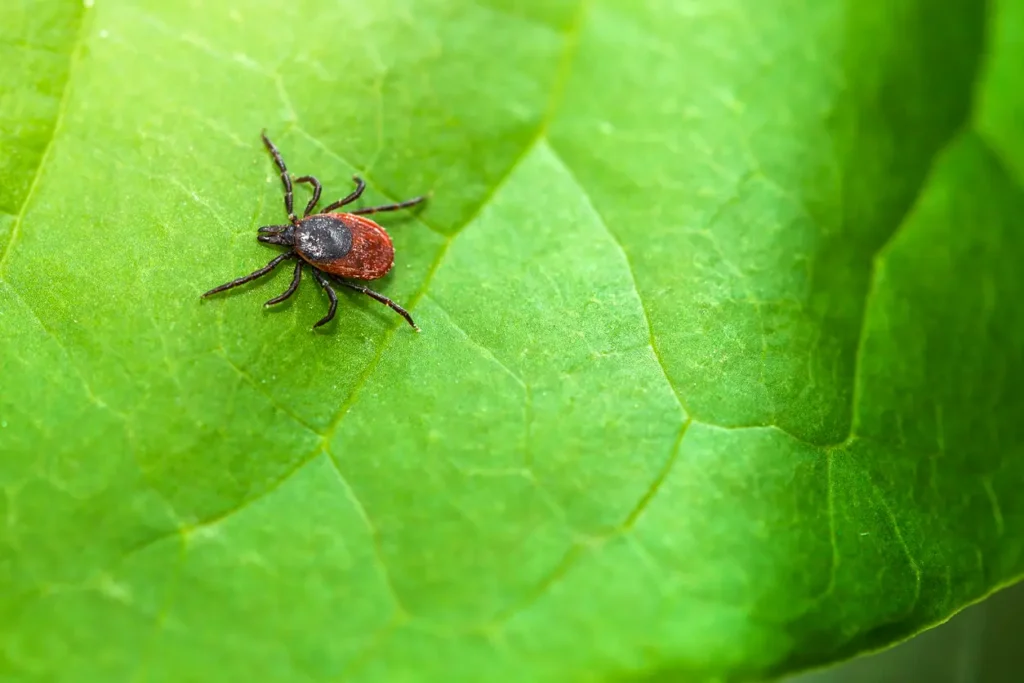
Effective Tick Treatment Methods
Controlling a tick infestation requires a multi-faceted approach that addresses both the existing tick population and the conditions that allow ticks to thrive. At All U Need Pest Control, we utilize a combination of strategies tailored to the specific needs of Brevard County homeowners. Our comprehensive tick treatment plans are designed to eliminate ticks from your property and prevent them from returning.
Habitat Modification
Habitat modification is one of the most effective ways to reduce the tick population on your property. By making your yard less hospitable to ticks, you can significantly reduce the likelihood of an infestation. Here are some key steps involved in habitat modification:
- Seal off all possible entry points to stop ticks from coming inside
- Clear away tall grass, shrubs, and other vegetation that ticks might be drawn to
- Remove any piles of firewood, rocks, or leaves where ticks can hide
- Increase sunlight in shaded areas to reduce moisture and make conditions unfavorable for ticks
By modifying the environment where ticks are likely to live, you can reduce the tick population and make your outdoor spaces safer for your family and pets.
Chemical Treatments
In cases where habitat modification alone may not be enough, chemical treatments can be an effective way to control ticks. All U Need Pest Control uses eco-friendly insecticides that target ticks while minimizing risk to humans, pets, and the environment. These treatments are applied to areas where ticks are likely to live, such as along the perimeter of your yard, in flower beds, and in areas of dense vegetation.
Chemical treatments are especially useful for targeting ticks in outdoor environments where manual removal is difficult. We may also use chemical treatments inside your home if ticks have found their way indoors.
Targeted Applications
Targeted applications allow us to focus our treatments on specific areas where ticks are most likely to hide or lay eggs. By applying insecticides directly to these hotspots, we can eliminate ticks at their source and prevent further infestations. Our targeted treatments are effective for addressing problem areas while ensuring the safety of your family and pets.
Education
At All U Need Pest Control, we believe that education is a crucial part of preventing future infestations. We work closely with homeowners to provide guidance on tick prevention strategies, such as proper landscaping techniques, regular yard maintenance, and pet care. By understanding how ticks behave and how to protect your home and family, you can reduce the risk of tick infestations.
Our tick treatment process in Brevard County follows a proven approach:
1. Inspection
The first step in addressing a tick infestation is conducting a thorough inspection of your property. Our team will assess the severity of the infestation, identify areas where ticks are most likely to be present, and determine the best course of action.
2. Treatment
Based on the inspection, we will implement a customized treatment plan tailored to your property’s specific needs. This may include habitat modification, chemical treatments, and targeted applications to effectively eliminate ticks.
3. Maintenance
To ensure long-term protection, we offer ongoing maintenance services that include regular inspections and treatments. This helps to keep ticks at bay and prevents future infestations from taking hold. Our maintenance programs are designed to provide peace of mind and protect your family year-round.
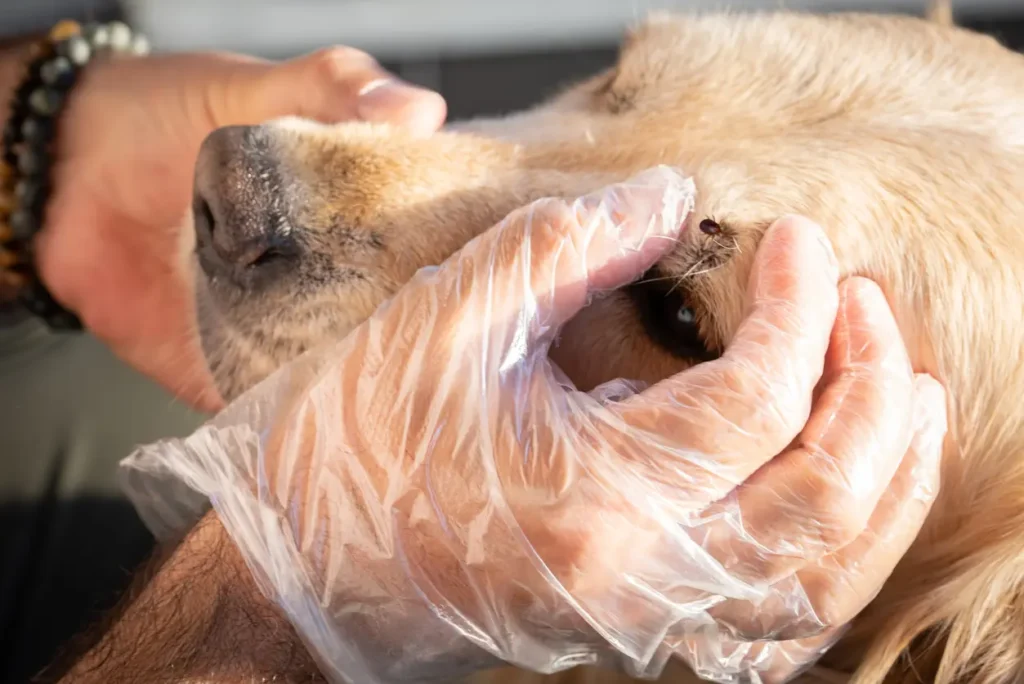
Pet-Safe and Eco-Friendly Solutions
At All U Need Pest Control, we are committed to providing tick control solutions that are safe for your pets and the environment. We understand that protecting your home from pests should never come at the expense of your loved ones’ safety or the natural ecosystem. That’s why we use eco-friendly, pet-safe methods to control ticks while minimizing our environmental impact.
Earth-Friendly Treatments
Our earth-friendly treatments are formulated with natural ingredients that target ticks without harming the soil, water, or surrounding wildlife. These treatments are designed to provide effective tick control without introducing harmful chemicals into your home or garden.
Minimum-Risk Pesticides
Unlike traditional pesticides, which can be harmful to both people and pets, our minimum-risk pesticides are specifically formulated to target ticks while minimizing any adverse effects. These products are designed to effectively treat infestations without compromising the health and safety of your family.
IPM
Integrated Pest Management (IPM) combines effective pest control with environmentally friendly practices. At All U Need Pest Control, we implement IPM techniques to provide long-lasting results while reducing the environmental impact of our treatments. This holistic approach ensures that we not only eliminate ticks but also prevent future infestations.

How to Prevent Ticks
Taking preventive measures is one of the best ways to keep ticks away from your property and reduce the risk of tick-borne diseases. Here are some practical steps you can take to prevent ticks from invading your home and yard:
Change Your Landscaping
Ticks thrive in areas with tall grass, dense vegetation, and moisture. Regularly mowing your lawn, trimming shrubs, and removing leaf litter can make your yard less attractive to ticks.
Invest in Tick Repellents for Pets
Protecting your pets from ticks is essential, especially in Brevard County where outdoor activities are common. Using tick repellents with DEET, permethrin, or other active ingredients can help prevent tick bites on your pets.
Spray Repellent on Your Clothes
If you’re planning to spend time outdoors, consider spraying tick repellent on your clothing. Many repellents are odorless and provide long-lasting protection, making them a great option for outdoor activities.
Wear the Right Clothing
Wearing long sleeves and pants can help reduce the amount of skin exposed to ticks. Ticks can’t bite through clothing, so covering up is an effective way to prevent bites.
Check for Ticks After Outdoor Activities
After spending time in wooded or grassy areas, it’s important to check your body for ticks. Use a mirror to inspect areas like your scalp, belly button, and ears, where ticks are likely to hide.
Avoid Areas That Might Contain Ticks
Ticks are commonly found in moist, shady areas. When hiking or spending time outdoors, try to stay on trails and avoid walking through tall grass or leaf litter where ticks are likely to be present.
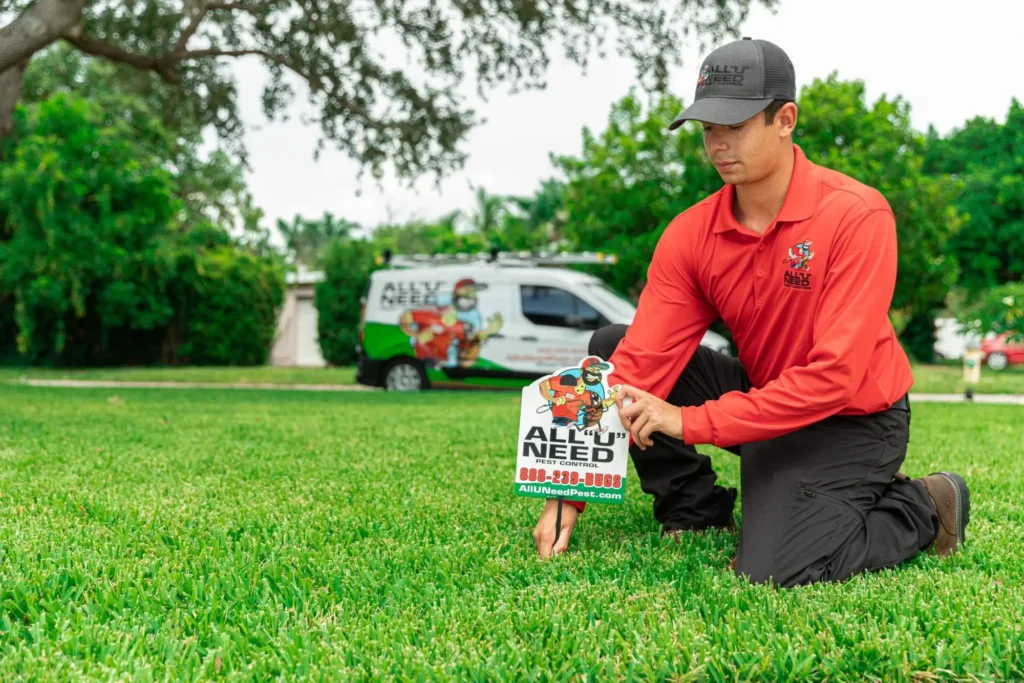
Choose All U Need Pest Control for Tick Control in Brevard County
Ticks can be more than just an annoyance; they can be a serious threat to the health and safety of your family and pets. When it comes to protecting your home from ticks, All U Need Pest Control offers the experience and expertise you need to effectively eliminate these pests and prevent future infestations.
Since 2003, we have been providing pest control services to homeowners in Brevard County, offering customized treatment plans that are tailored to the unique challenges of each property. Whether you’re dealing with a minor tick problem or a full-blown infestation, we have the tools and knowledge to get the job done right.
Our commitment to customer satisfaction means that we won’t rest until your home is tick-free. If you’re not completely satisfied with our services, we’ll re-service your property at no additional charge.
Don’t let ticks take over your home or yard—contact All U Need Pest Control today at 1 (888) 239-BUGS or visit our website for more information. We offer fast, professional service, and we’ll help you reclaim your outdoor spaces from ticks.
Location Contact:
310 N Wickham Road Unit 117 Melbourne, FL 32935
Get Directions for 310 N Wickham Road Unit 117Melbourne, FL 32935 on Google Maps321-351-0573
Call All "U" Need Pest Control